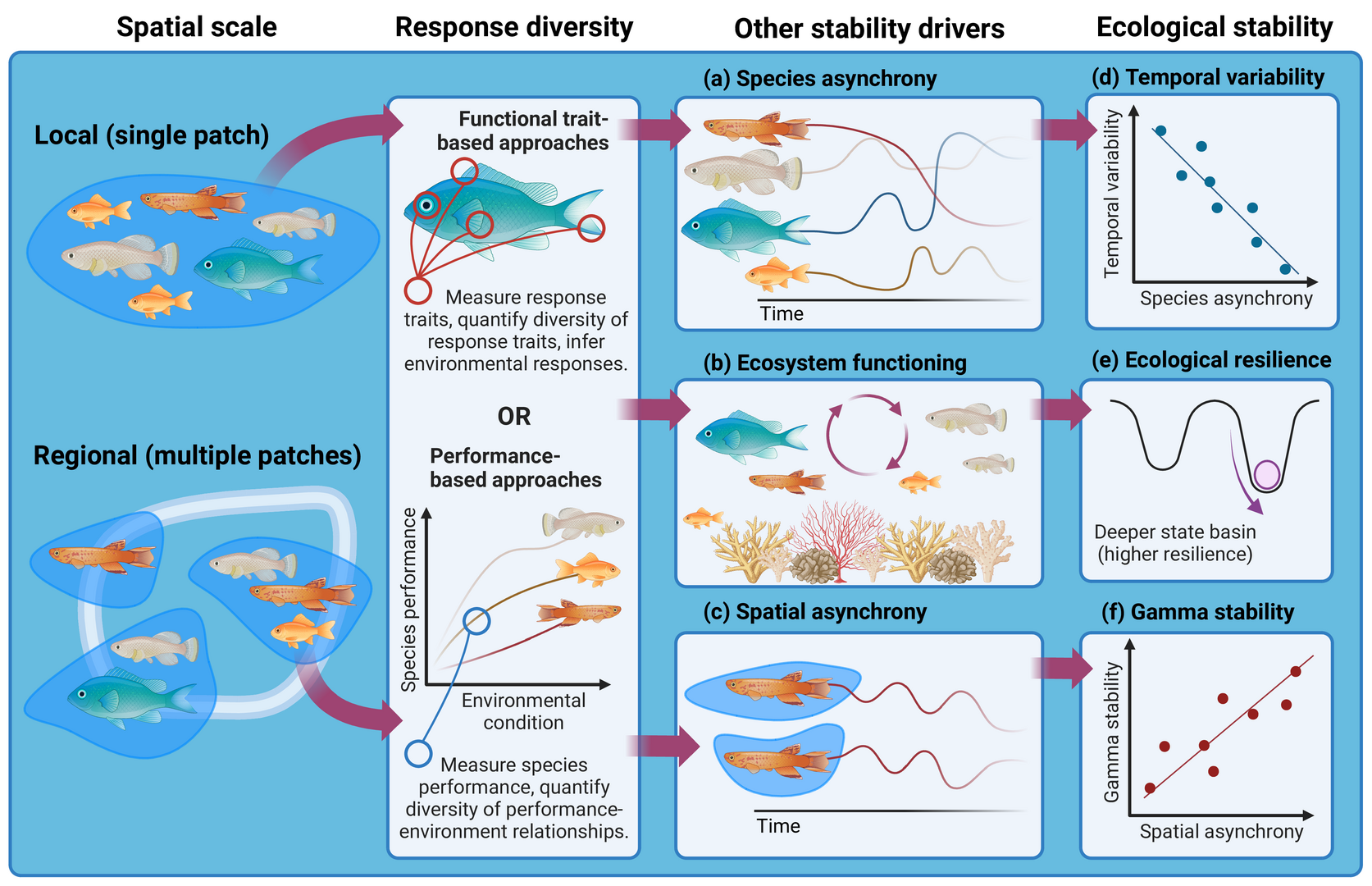The Future of Response Diversity and Ecosystem Stability (TP23RD)
A workshop connected to the program will be held from March 26-28, 2024.
Abstract
Ensuring the stability of the ecological processes that maintain the natural world is vital for sustainable development. Yet, despite decades of work on ecosystem stability, a general driving mechanism has not been reliably identified. One candidate is the concept of response diversity. Response diversity characterises the range of species responses to environmental conditions, where higher response diversity indicates a wider variety of species responses. Based on classical diversity-stability theory, high response diversity should stabilise because declines in the abundance of one species are more likely to be offset by positive responses of another. Yet, response diversity has been measured in ecological studies only rarely, limiting understanding of the drivers of stability. Recent conceptual and methodological advances have granted us the opportunity to dive deeper into this neglected element of biodiversity for the first time, but much work remains. This workshop will build on the foundation laid during the Visiting Scholars’ tenure at OIST to make critical theoretical and methodological developments necessary to guide empirical research on response diversity as it related to ecosystem stability in the immediate and longer-term future.
Our workshop will be open to all members of the OIST community, and will include sessions led by Visiting Scholars and the Program Coordinators, as well as seminars from all invited participants. The proposed workshop participants are from a range of academic backgrounds and institutions, including world-leading theoreticians and empiricists. Break-out sessions during the workshop will span several promising directions, including: the application of response diversity in multiple dimensions when environmental conditions are nonlinear and uncorrelated; the inclusion and importance of intraspecific (within species) and interspecific (between species) interactions for the estimation of response diversity and its relationship with ecosystem stability; the scaling of response diversity in time and space, and its implications for empirical estimation of response diversity and stability; and the contribution of individual species to response diversity and stability. There will be built-in time for additional breakaway discussions as they arise during workshops and following talks. Together, the combined work of the Visiting Scholars and Workshop Participants is set to provide an important contribution to establishing the future direction of the field, and we anticipate the associated journal articles, videos, and other methods of dissemination will have significant impact on the understanding of how critical biodiversity is for environmental sustainability via response diversity.

Research Seminars
General audience talks
Ecological Society of Japan Meeting in Yokohama
The Ecological Society of Japan’s annual meeting will be held between 18-21 March 2024 at Yokohama National University campus in Yokohama, Japan. As part of this Thematic Program, Sam Ross and Takehiro Sasaki have organized a symposium including several additional Thematic Program participants and coordinators Sam Ross and Owen Petchey.
Workshop
A workshop connected to the program will be held from March 26-28, 2024.
Scientific Coordinators
Samuel R.P.-J. Ross (OIST), Owen L. Petchey (University of Zurich)




